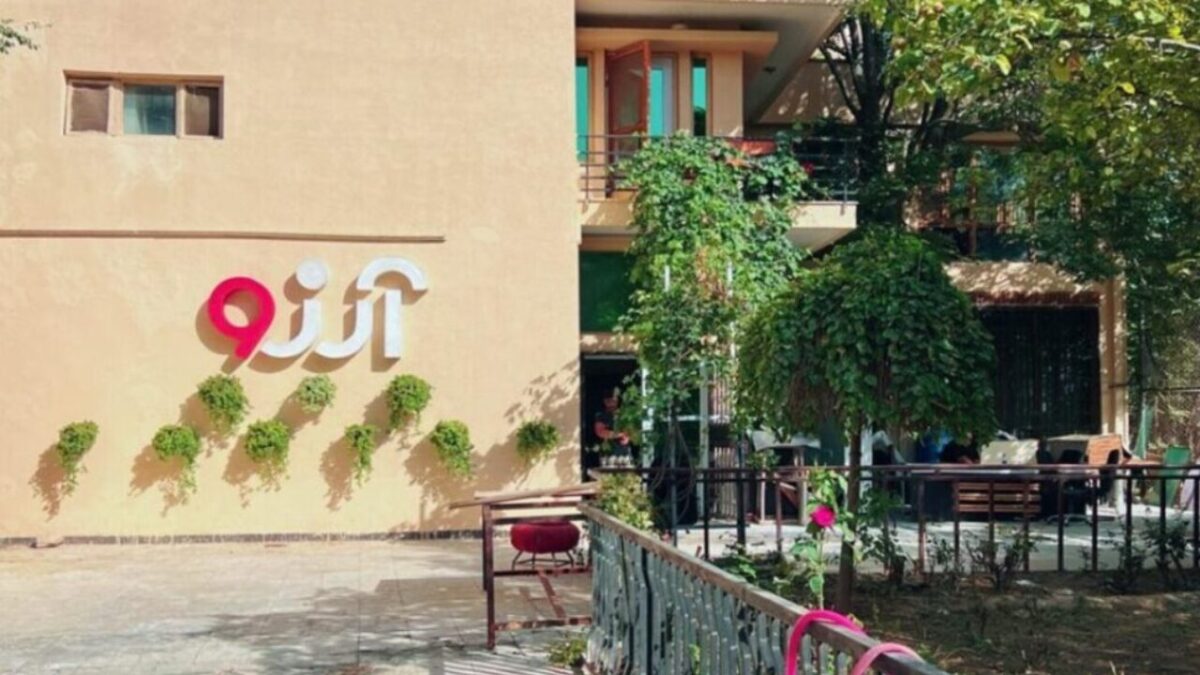KABUL, Afghanistan — The Taliban have defended their decision to shut down Arezo TV in Kabul, claiming the move was necessary to “preserve Islamic values, prevent misuse of media, and strengthen social order,” according to a statement from the Taliban Ministry for the Promotion of Virtue and Prevention of Vice.
The ministry alleged that an investigation revealed misuse of Arezo TV’s name and resources, with “unofficial individuals” employed to produce and broadcast content that was purportedly “inconsistent with Islamic principles and Afghan traditions.” The Taliban further accused the station of airing programs funded by exiled media organizations.
The ministry’s statement urged all media outlets to prioritize “Islamic values, national interests, and social ethics” in their operations and to contribute to a “healthy and prosperous society.”
Raid and arrests
On Wednesday, Dec. 4, the Afghanistan Journalists Center confirmed that Taliban intelligence agents and officials from the Ministry for the Promotion of Virtue raided the Arezo TV offices, arrested seven staff members, and shut down the station.
A notice posted by the Taliban on the station’s door stated that the closure was due to the broadcast of “immoral and vulgar serials.” The Taliban reportedly interrogated the staff for several hours, confiscated their phones, and searched the station’s archives.
Witnesses told the Journalists Center that the Taliban’s investigation continued until 3 p.m. local time, after which seven employees, including Kabul office manager Amanullah Azimi, producer Amir Hossein Atryan, host Khalid Barakzai, and several production staff members, were detained. The Taliban also seized computers and other equipment.
Arezo TV, established in Mazar-i-Sharif in 2006, expanded to Kabul in 2010, where it operated studios for news, content production, and dubbing. The station became known for broadcasting wildlife documentaries and Turkish dramas dubbed into Persian.
Growing media restrictions
The closure of Arezo TV is the latest in a series of escalating restrictions on media under Taliban rule. Over the past three years, the Taliban have imposed stringent limits on journalistic activity, including a recent ban on broadcasting images of living beings in six provinces.
A report by Reporters Without Borders ranked Afghanistan 178th out of 180 countries for press freedom in 2024. According to the Free Speech Hub, more than 300 media outlets have ceased operations since the Taliban’s return to power in 2021.
The United Nations last week called on the Taliban to guarantee the safety and freedom of journalists and media workers, warning that increasing censorship, intimidation, and restricted access to information threaten the country’s already fragile media landscape.
Calls for action
The Free Speech Hub has condemned the closure of Arezo TV and the arrest of its employees, urging the Taliban to “end the repression of media and stop putting pressure on journalists.”
The media watchdog also called on the international community to hold the Taliban accountable for their repeated human rights violations and to provide stronger support to Afghan journalists and media outlets.
In addition, the Free Speech Hub appealed to UNAMA and global media advocacy organizations to take immediate action to secure the release of the detained journalists and ensure protections for the country’s embattled press.





